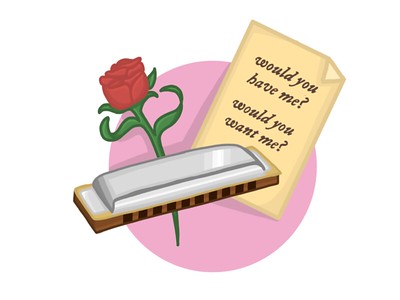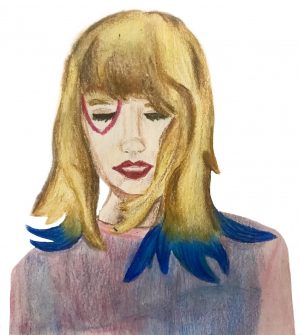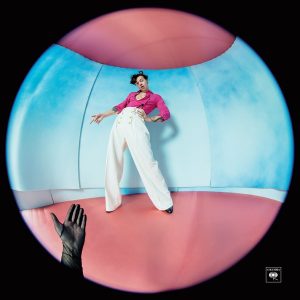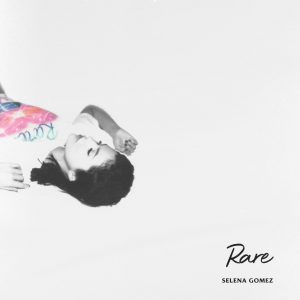The ‘folklore era’ shows a reimagined Swift

With the release of “Folklore,” Taylor Swift reflects her journey not only as an artist, but also as a person
August 17, 2020
Singer-songwriter Taylor Swift made headlines on Jul. 23, announcing on her social media platforms the release of her 8th studio album “Folklore” at midnight. “Folklore” is a masterpiece made from scratch in the times of quarantine, blending dreams with reality. The album embraces and envelopes every listener with open arms, while showing her own growth as an artist.
Before exploring “Folklore,” it’s imperative to look at Swift’s discography and her career in a nutshell. Jon Caramanica, a NYTimes pop music critic highlighted how Swift is “a pop star done with pop,” but not in a bad way. Swift isn’t canceled. If anything, it’s the opposite. She has shown the world who she is and how she can craft her own “eras,” showcasing her musical and personal growth.
Her debut self-titled album was country at its core. “Fearless” followed, it was still country, but had its own pop hits, such as “You Belong with Me.” “Speak Now” was country, but at this point, she created her own kind of country-pop fusion that appealed to a new and emerging fan-base. “Red” marked the start of her transition to pop, with hits such as “I knew you were trouble.” “1989” showcased Swift as a full-fledged pop star, able to cater to many musical palettes. “Reputation” displayed a darker pop star at its prime, an era filled with snake-themed merchandise and cloudy colors. “Lover” followed, a pastel-themed, bubbly pop era, infused with newfound confidence and the occasional rainbow in “You Need to Calm Down.” Needless to say, no one really saw “Folklore” coming. But I guess she didn’t either, because “the old Taylor can’t come to the phone right now. / Why? / Oh, cause she’s dead.”
In past eras, Swift kept her fans on edge, dropping easter eggs in music videos and social media posts, methodically keeping constant buzz, only to explode with excitement when the album was announced with plenty of pomp and circumstance. When it came to “Folklore,” for the first time in her career, she avoided the noise with no easter eggs, truly releasing music for herself, and still managed to break the internet, rising to the top of the charts. “Before this year I probably would’ve overthought when to release this music at the ‘perfect’ time, but the times we’re living in keep reminding me that nothing is guaranteed,” Swift wrote on Twitter, announcing “Folklore.”
Swift has always been known for writing most of her own songs. Part of her genius as a musician, regardless of the genre, comes from her songwriting abilities, paired with her imaginative mind. Her unique ability to act through the lyrics was shown through “the times we’re living in,” in other words, living through a global pandemic. She detailed, “I poured all of my whims, dreams, fears, and musings into [this album] … I wrote and recorded all of this music in isolation.” She swayed far-away from the boy-crazy stereotype society shoves her into, enabling herself to tell both the stories of others and her own unapologetically with her own words — her own voice.
Take “The Last Great American Dynasty” as an example. It’s the true story of Rebekah Harkness, the previous owner of Swift’s Rhode Island mansion, “the maddest woman this town has ever seen” who “had a marvelous time ruining everything.” Editorial fellow at Elle, Savannah Walsh, remarked that Swift referenced this track “specifically when she writes about ‘a misfit widow getting gleeful revenge on the town that cast her out.’”
Emotional powerhouses like “Exile,” featuring Bon Iver, are personal to her and show how toxic relationships can be – “I think I’ve seen this film before / and I didn’t like the ending” comes up in the chorus. There is plentiful emotional angst, making for a gut-wrenching, classic sad song, while making connections and exhibiting her growth — “I’m not your problem anymore / so who am I offending now? / I think I’ve seen this film before / so I’m leaving out the side door.” Swift is breaking her own vision of how society paints her.
Even more, what makes the “folklore era” unique is that Swift used her abilities shown in “Exile” and “The Last Great American Dynasty” to craft songs open to interpretation, every listener taking away their own powerful feelings.
“Epiphany” captures the grim reality of living in a time where losing someone could not be more common — “something med school did not cover / someone’s daughter, someone’s mother / hold your hand through plastic now / ‘doc I think she’s crashing out’/ and some things you just can’t speak about.” Longing for “just one simple glimpse of relief / to make some sense of what you’ve seen” is not only an epiphany itself, but a testament to the times and the lasting impact of loss and grief, in the face of universal uncertainty not limited by social class or societal status.
“Mad Woman” perfectly encapsulates the reality of a patriarchal society, because “what a shame she went mad / no one likes a mad woman / you made her like that.” Once women speak out, they suddenly become too loud, especially since “when you say I seem angry / I get more angry,” unable to be individualistic. “Women like hunting witches too / doing your dirtiest work for you” is a glimpse into how women in society are expected to cater to men in a submissive matter. “
it’s obvious that wanting me dead / has really brought you two together,” conveys the feeling of feeling “other” in society.
“Betty” is a love song about James, who “lost the love of his life basically and doesn’t understand how to get it back,” Swift told Billboard. Unlike a “typical Taylor love song,” it’s written from the perspective of a 17-year old boy, enabling Swift to “slip into different identities,” especially with the use (or lack) of pronouns. Swift confirmed the characters in the song are named after Ryan Reynolds and Blake Lively’s daughters. However, her ability to swap identities for the sake of artistry and musicality not only allows listeners to think for themselves, but also breaks certain societal heteronormative expectations, regardless of how Swift herself identifies. That’s a big deal, especially for an A-list artist.
Insider digital culture reporter, Kat Tenbarge, wrote a personal essay about “as a women who loves women, Taylor Swift’s ‘Folklore’ lyrics resonated deeply with my queer experiences.” Specifically, the tracks “Betty,” “August” and “Cardigan,” (which Swift has said are part of a fictional high school love triangle) discuss unfaithfulness, secrecy, guilt, pain, and having to hide parts of oneself at a young age — “I’m only seventeen / I don’t know anything but I know I miss you… / the only thing I want to do is make it up to you.”
“Seven” is another track that has similar themes of internal conflict and pain, with lyrics such as “I’ve been meaning to tell you… / me and we can be pirates / then you won’t have to cry / or hide in the closet.” In other words, as Tenbarge writes, “themes of infidelity throughout ‘Folklore’ resemble the emotions associated with being closested and having relationships that aren’t allowed.”
Swifites have discussed at length online about how “Betty is a queer anthem!” It isn’t, but the beauty that it can be a queer anthem to some and just another love song to others is a way to normalize what isn’t normalized – just being authentic to ones self without judgement.
As a result, the “folklore era” will likely mean different things to different listeners. It presents a Swift that is both rough and genuine, no longer a people-pleasing stereotype, an album written so well that it fits into almost any mold, identity, situation, or circumstance. Such a notion itself breaks barriers and societal expectations. Swift has no need to prove her talent or her worth, because she already has. She is subtly breaking barriers, which is what defines the “folklore era”, and that is Swift’s genius.





